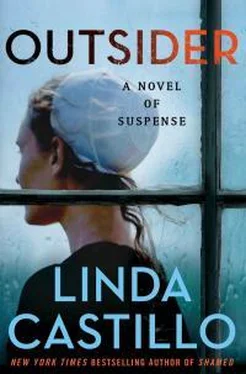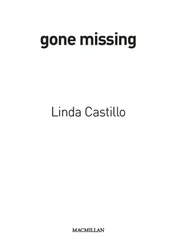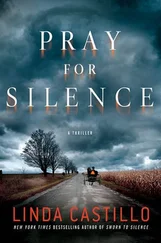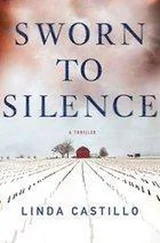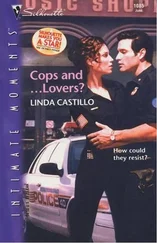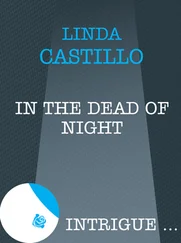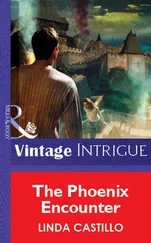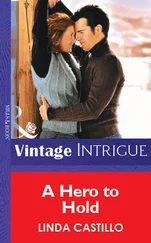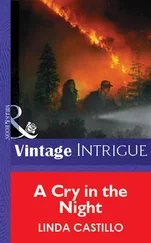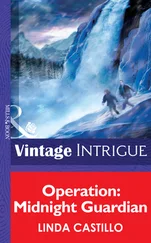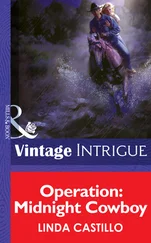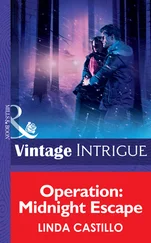Adam wasn’t sure how to respond. The one thing he did know was that he didn’t want her reaching for that gun again. Moving closer, he picked it up. The steel was cold in his palm, wet from the snow, bits of ice on the muzzle. Not a revolver. He was no stranger to rifles; he’d been a hunter since he was thirteen years old. He had a .22 and an old muzzle-loader at home. This was … something else. What was she doing with a gun? Was it for protection? Was she a trustworthy individual? A criminal? If he helped her would he bring danger into his home?
Keeping the weapon out of sight from the children, Adam turned it over in his hand. It took him a moment, but he figured out how to release the magazine that held the ammunition. He dropped the clip into his coat pocket. He pulled back the slide, checked the chamber, dumped the single bullet into the snow. He put the weapon in another coat pocket.
“I guess I’m at your mercy now, huh?” the woman whispered.
Adam got to his feet. A glance over his shoulder told him all three children were sitting in the sleigh, their faces turned his way, expressions curious and worried. Around him the day no longer seemed magical. The snow no longer a gentle thing, but a threat. The wind had picked up, driving the falling snow sideways. Even the horse was hunched against the cold and wind.
He looked down at the woman. She lay still, unmoving, her eyes closed, as if she’d given up. Already a thin veil of snow clung to the newly exposed area of her clothes, her hair. If he left her here, she would freeze to death—or become buried if the sheriff’s deputies couldn’t get to her quickly.
She shifted as if in pain, made a sound that might have been a word. Keeping his distance, Adam knelt. “Do you want me to help you?” he asked.
She didn’t open her eyes. Her lips barely moved when she spoke. “Get Kate Burkholder,” she ground out. “I’m a cop. Get her.”
Adam knew the name. He’d known Katie Burkholder most of his life. How did this stranger know her? This was not the time to question her. She was injured and weak. He looked at his children. “Make a place for her on the backseat!” he called out. “We’re taking her home.”
“ Ja! ” Sammy said.
Adam looked at the woman. “Can you walk?”
She shifted, winced, her left leg flailing and then going still. “I don’t know. Give me a minute.”
He didn’t think a minute would help. In fact, if she didn’t get out of the cold soon, she’d likely fall to unconsciousness and die.
“I’ll help you.” Not giving himself time to debate further, he bent to her, plunged his hands into the snow beneath her, and scooped her into his arms. She was small, smelled of cold air and some sweet English-woman scent.
“Sammy!” he said. “Take the lines. We’re going home.”
The woman’s head lolled; she was dead weight in his arms. Concern for her niggled at the back of his mind when he saw blood on her coat. He felt the warmth of it run across his wrist as he trudged through deep snow.
“An Englischer, ” Sammy said as Adam approached the sleigh.
“ Ja, ” he replied.
“Is she frozen?” the boy asked.
“Hurt. And weak from the cold.”
“Who is it, Datt?” came Lizzie’s voice.
“I don’t know,” he told her. “Must have gotten lost in the storm. Someone’s probably worried about her, though, don’t you think?”
“Her mamm probably,” Lizzie said. “They always worry.”
“Annie, get the afghan so we can cover her up. Quickly now.”
“Datt, she’s bleeding!” Sammy pointed, alarm ringing in his voice, his little hands gripping the leather lines.
“She must have hurt herself in the wreck is all,” Adam told him. “Come on now. Girls, move to the front seat. Give her some room.”
Lizzie and Annie scrambled into the front. Adam stepped into the sleigh and set the woman on the rear bench seat, trying to ignore the smear of blood on the leather. The seat wasn’t long enough for her to stretch out, so he bent her legs at the knee.
“Hand me that afghan,” he said.
Annie thrust the throw at him. “She looks cold.”
“I think she’s been out here awhile,” he said. “Too long.”
“Is she going to die?” Lizzie asked.
Since losing their mother, the children had become aware of death and all its shadowy facets. Adam did his best to answer their questions. They knew death was part of the life cycle. They knew that when people died, they went to heaven to spend all of eternity with God. But they also knew that death had taken their mamm from them and she wouldn’t be coming back.
“That’s up to God now, isn’t it?” Adam draped the afghan over the woman, tucking it beneath her. “We will help her as best we can. The rest is up to Him.”
He worked off his coat and draped it over the woman. Under different circumstances, he would have taken the lines and asked one of the children to stay with her. In light of the gun and her rough language, he didn’t want them getting too close to her.
Kneeling on the floor between the front seatback and the rear seat, he set his hand on his son’s shoulder.
“Let’s go,” he said.
CHAPTER 2
When you’ve been a cop for any length of time, you learn to appreciate the mundane. In a town the size of Painters Mill, Ohio, population 5,300—a third of whom are Amish—mundane is a criterion we can pretty much count on. Except, of course, when Mother Nature drops a foot of snow and everyone decides they need to get to work on time anyway. Such is the life of a small-town chief of police.
I’m standing next to my city-issue Explorer on the shoulder of Township Road 18, a mile or so out of Painters Mill. Around me, heavy snow slants down at a nearly horizontal angle. The wind is kicking to about thirty knots, and visibility has dwindled to less than an eighth of a mile. If the weatherman is correct, things are going to get worse before they get better.
The vintage Mercedes went through the wood fence, busting all four rails along with two posts, the tires digging deep trenches through the ditch, and now sits at a cockeyed angle in the pasture. A dozen or so of Levi Hochstetler’s black angus cattle decided the car was a lot more interesting than the pile of hay up by the barn, and came down to investigate. Two of the animals are already poking around the opening in the fence.
“I was on my way to the shop and came over that hill.” The driver, Joe Neely, the owner of the wrecked Mercedes and Mocha Joe’s—a nice little upscale coffeehouse in town—motions to the road behind him. “Must have hit a slick spot, because I went into a spin. Next thing I know I’m in that pasture.”
I nod, saying nothing, but I have a feeling there’s a little more to the story than he’s letting on—like maybe he was in a hurry and driving too fast for the road conditions. I keep the theory to myself. I’ve met Joe several times in the year since he opened Mocha Joe’s; I make it a point to get to know all the merchants and shopkeepers in town. He never hesitates to offer up free coffee to me and my officers—the sheriff’s department, too. He’s a decent fellow, a family man, and I’m confident he’ll make things right with the homeowner.
“Are you injured, Mr. Neely?” I ask. “Do you need an ambulance? Get yourself checked out?”
“Oh, heck no, Chief Burkholder. I’m fine. Just…” He looks at his car and sighs. “I sure do like that car. She might be vintage, but she’s my first Mercedes. Bought her the day I opened the shop and had a crush on her ever since.”
“Going to need a new headlight,” I tell him. “Maybe get that quarter panel replaced. You want me to get you a wrecker?”
Читать дальше
